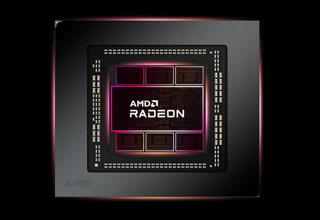GPU market sees impressive recovery as desktop graphics cards sales rocket up 37% — JPR says 'the post-Covid black death is over'
AMD did especially well.

GPU shipments increased 16.8% in Q3 compared to Q2, largely thanks to desktop graphics cards, according to Jon Peddie Research. Declaring that "the post-Covid black death is over," the report shows that the GPU market may finally be on the path to recovery after a dreadful two years of nearly back-to-back decreases in shipments.

Although the COVID-19 pandemic fueled intense demand for PCs and GPUs by extension, the market entered a significant downturn in 2021. The market finally rebounded in Q2, but it wasn't clear if it would hold. Q3's 16.8% quarter-over-quarter increase in shipments, however, strongly indicates that things are finally on the upswing for the graphics industry.
Although this figure covers both discrete and integrated graphics cards across all kinds of PCs, one of the biggest drivers of this growth was in desktop graphics cards. Shipments of desktop graphics cards (primarily used for gaming) increased 37.4%, well above the overall growth of 16.8%. Of course, this only balances out the historically poor sales of desktop GPUs earlier this year.
JPR didn't provide an exact breakdown of how responsible desktop graphics cards were for the market's recovery, but the data implies that desktop GPUs had a significant impact despite their much smaller presence than laptop GPUs.

Market share also shifted pretty significantly, though AMD, Nvidia, and Intel all increased their shipments by double digits. AMD saw a 36.6% increase, with Nvidia at 25.2%, and Intel at just 10.4%. AMD had the biggest increase in market share at 3%, which was largely down to shifts in integrated graphics according to JPR. Intel's market share loss of 4% was also down to iGPUs, which makes up the vast majority of the company's share.
Although the data looks very positive for the market, JPR cautioned that it might not be a sign that 2024 will be the year of the GPU. Dr. Jon Peddie, the president of JPR, stated COVID-19, crypto mining flare ups, and the 2008 financial crisis each "brought the PC market down a notch, and always the market rebounded, but not quite as high as before... this bounceback is no different and is being overpraised."
The GPU shipments chart definitely aligns with that pessimism, as GPU sales were on a yearly decline after 2014. In fact, it was only in the first quarter of 2021 that we saw GPU shipments equal to that in Q3 of 2014. Although Q3 of this year saw great quarter-over-quarter growth, shipments are still significantly down compared to even 2019.
If JPR is correct, we might not even see the GPU market recover to those levels, and instead continue the steady decline we've seen persist for most of the past decade.
Stay on the Cutting Edge
Join the experts who read Tom's Hardware for the inside track on enthusiast PC tech news — and have for over 25 years. We'll send breaking news and in-depth reviews of CPUs, GPUs, AI, maker hardware and more straight to your inbox.
Matthew Connatser is a freelancing writer for Tom's Hardware US. He writes articles about CPUs, GPUs, SSDs, and computers in general.
-
tamalero Is there any reason why almost always when its a good news, the title never says "AMD". But when its bad news in an article, the name AMD is everywhere?Reply -
BX4096 Reply
Read the subheading: "AMD did especially well."tamalero said:Is there any reason why almost always when its a good news, the title never says "AMD". But when its bad news in an article, the name AMD is everywhere?
There was zero reason to single out "AMD" in the main headline since NVIDIA's sales were also good. -
valthuer It''s good to see AMD getting the biggest increase in their share. All pc users will benefit from a more competitive GPU market.Reply
Also, i would love to see AMD creating a better flagship card than Nvidia, although that's obviously damn difficult to do. -
Lucky_SLS I think the gpu market share also included integrated graphics, skewing intel arc market share...Reply
Most Popular


By Mark Tyson

By Mark Tyson


By Mark Tyson
